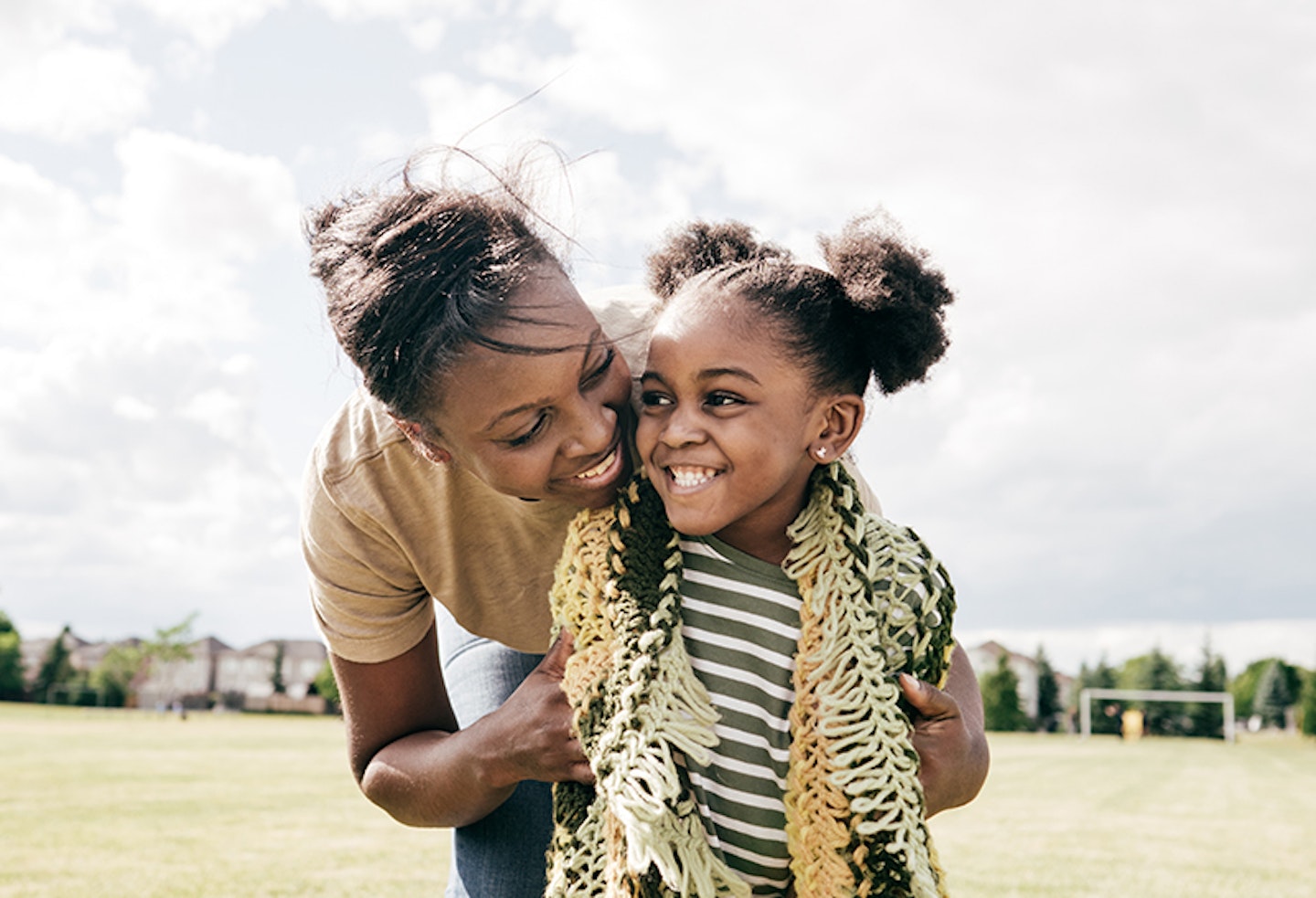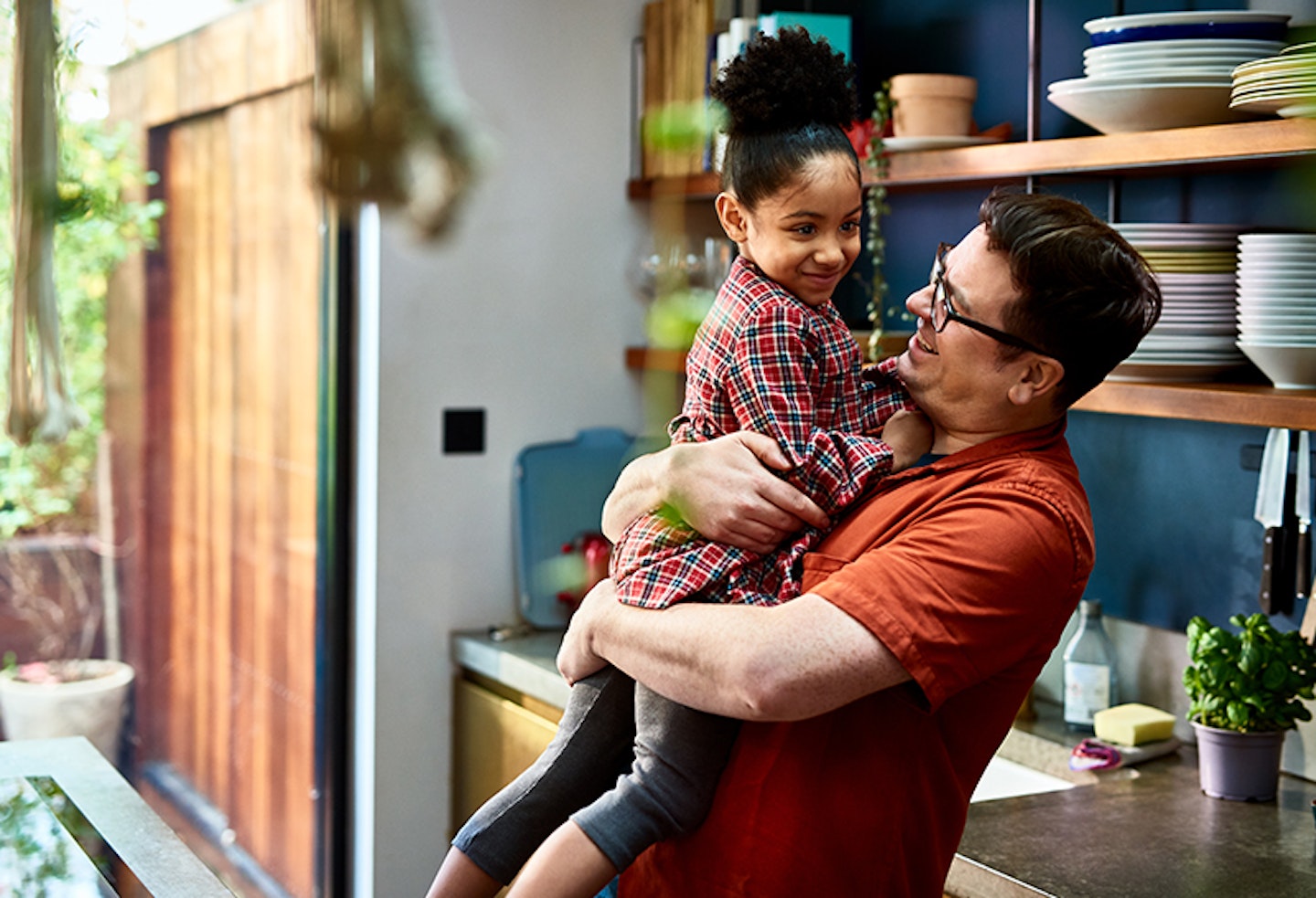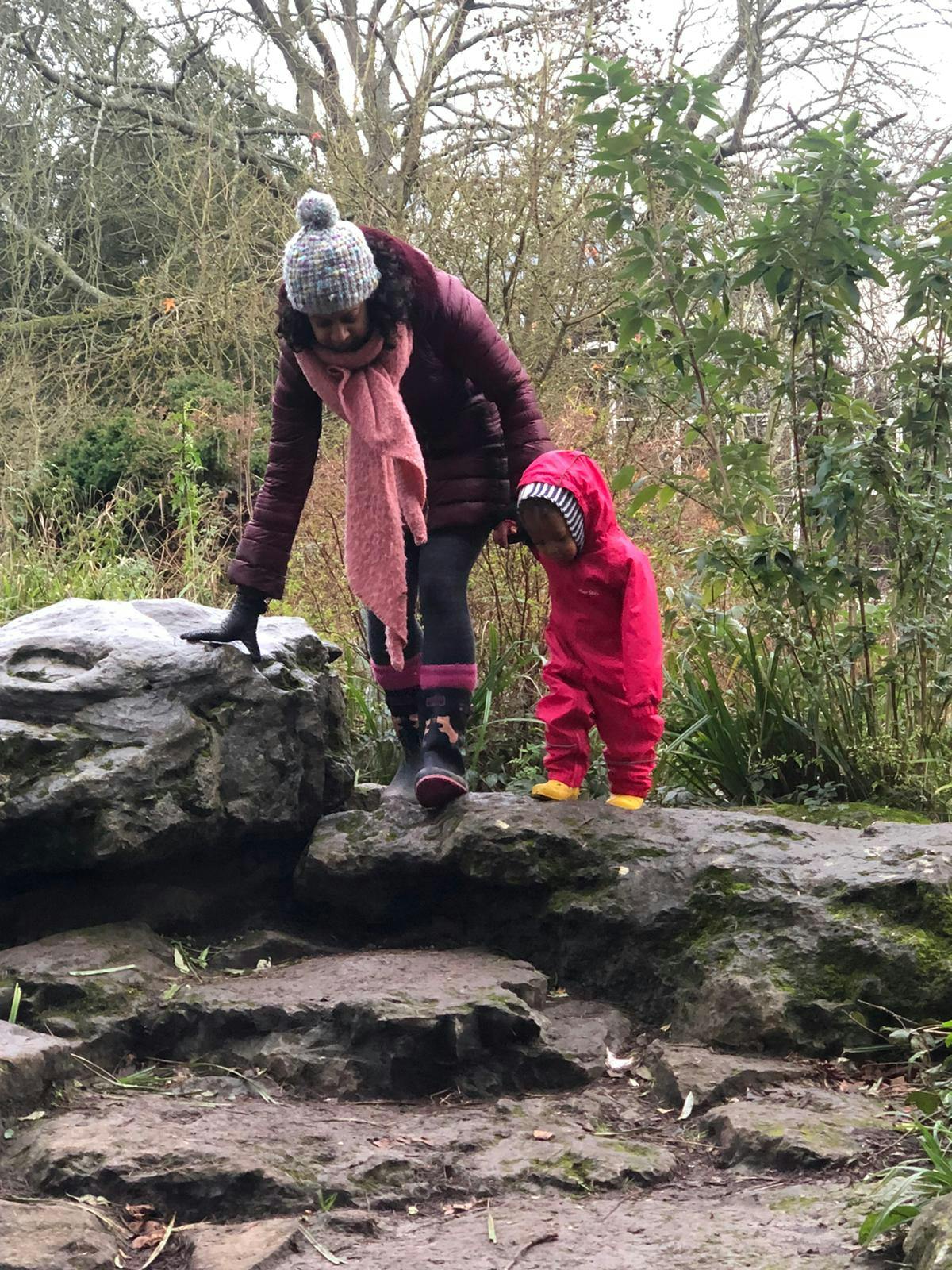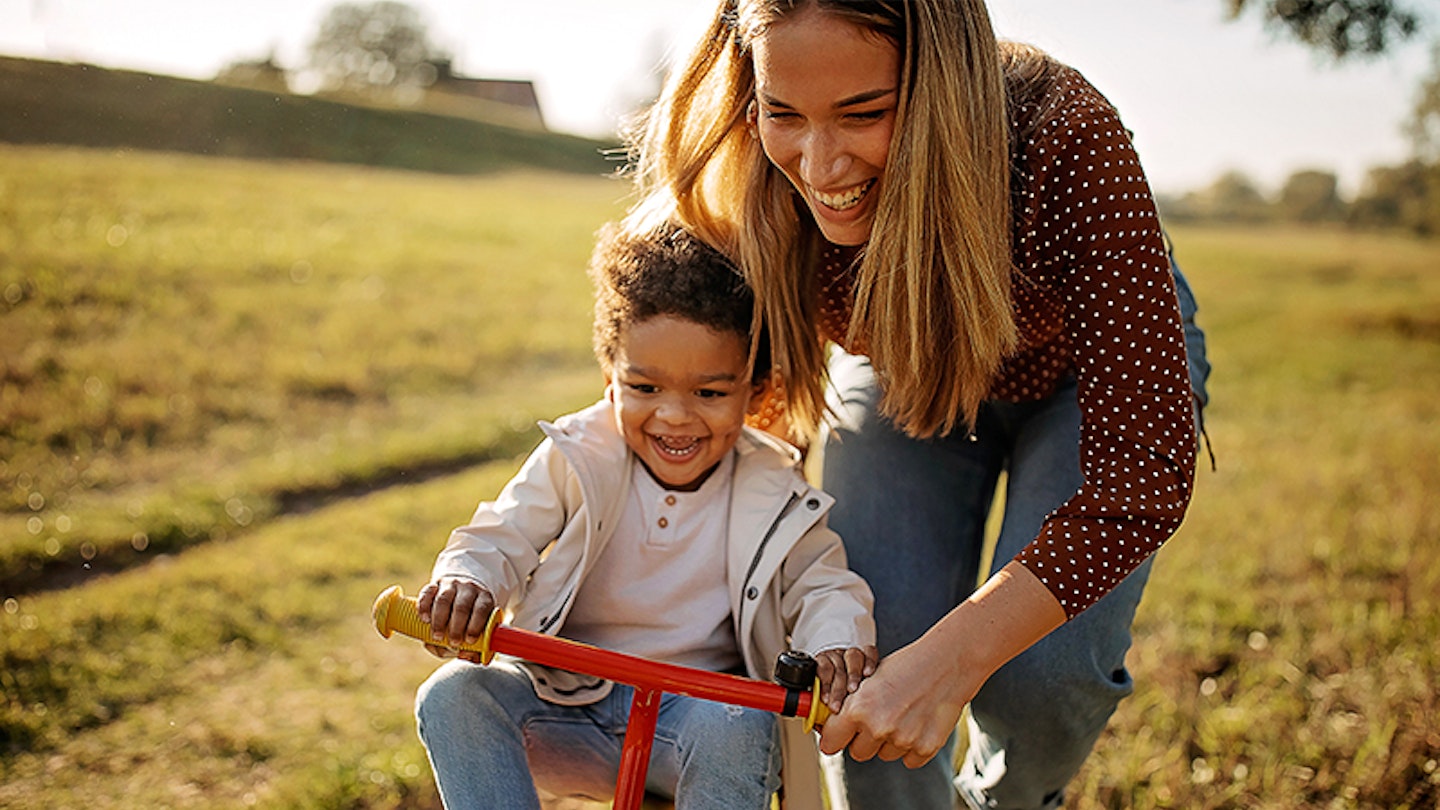Whether you simply never found the right person or you're happy on your own, there are many reasons why you might be single. But this doesn't have to stop you from having a family.
Adopting a childis a huge commitment but it's an opportunity to provide love, care and a home to children who may have had a difficult start in life. And you don't need to be in a relationship to be able to do that.
We spoke to the charity Diagrama to find out more about adopting as a single person.
Can I adopt a child as a single person?
Yes, both single men and women can be considered for adoption in the same way as couples are. Diagrama works with a range of people who are committed to adopting. Diagrama’s adopters can be single; or living within heterosexual or same-sex married couples, civil partnerships, or unmarried couples. The important thing for all potential adopters is that you have a loving home and the time and dedication to welcome a child into it.
Is it more difficult to adopt as a single person?
No. Potential adopters go through the same process whether they are single or living with a partner. Adoption agencies are interested in finding the best parents for the children who need an adoptive family, and they could be single or living in a couple. Single people often have concerns that they may not be considered if they work but being in employment is not a barrier to adoption.
Why are single person adoption numbers so low?
In March 2020, 89 per cent of children were adopted by couples and 11 per cent by single adopters.
Figures may be low for single adopters because there is a widely held misconception that single people can't adopt or potential adopters may feel that they would be unable to cope as a single parent. However, if you are single and would like to consider adopting, please be aware that your application will be treated no differently to one from a couple.
Diagrama promotes very careful matching between prospective single adopters and children to ensure the adopter can meet the child's needs. They offer a five day a week adoption support helpline as well as an out of hours service which is open evenings and weekends throughout the year. Diagrama also offers support groups and training and can introduce you to other single adopters so that you can build a great support network.

How do I decide if it’s right for me?
Everyone who thinks about adopting has a myriad of things they want to ask so Diagrama has a page on their website dedicated to answering many of those frequently asked questions.
Diagrama hold online information events to find out more about adoption and after attending one of these events, if you would still like to consider adoption, a consultation can be booked with one of the charity’s experienced Social Workers to find out even more about whether adoption is right for you.
And do remember if you take the first steps but decide that adoption isn’t right for you now, you can always come back and explore it again later.
What are the advantages of adopting as a single person?
There are so many advantages to adopting as a single person.
-
Not having to negotiate or consult with a partner means you can parent and do your best for your child the way that you want to.
-
Your child will not be competing for your attention with anyone else and you may build a very special 1:1 relationship, and for some children, a single adopter is preferred for this reason.
-
Research shows that children adopted by single adopters do just as well as other adopted children in so many ways.
What could prevent me from being successful in adopting?
Each enquiry is decided upon on a case-by-case basis, irrespective of any difficulties you may think you have had in your life. Adoption Agencies are interested in hearing about how you can offer a child a permanent, loving home, with the energy, determination, motivation, and sense of fun that it takes to be a parent.
To adopt in England, you must be legally resident in the UK, the Channel Islands or the Isle of Man, and have been for at least 12 months. UK citizens living abroad cannot adopt from the UK.
If you are under 21, you cannot legally adopt in the UK but do consider coming back to adopt later!
If you, or a member of your household have a criminal conviction or caution for offences against children or for serious sexual offences, you will not be able to adopt. Other criminal offences will not automatically exclude you but will be taken into consideration during the assessment process.

What is the first step I should take to begin the process?
As a first step on the road to adoption, all potential adopters should attend an information evening where they will have the chance to ask anything about adoption, while learning about the adoption process and the huge rewards adopting a child or children bring. Importantly you will also hear from those who have already built their families through adoption.
These information events will help if you are worried about what's really involved with adoption, whether you have got what it takes to welcome a vulnerable child into your home or if you need reassurance about the level of support that is available.
If you want to take the first steps to transforming a child’s life, why not book a place on one of Diagrama’s free adoption information events. Register via Eventbrite or email adoption@diagrama.org.
Making the decision to adopt a child is life-changing. People consider adoption for many different reasons, and it can be difficult to take those first steps. Please don’t worry Diagrama will help you understand the process and provide comprehensive support throughout the adoption journey.
Single parent adoption story
Lawyer Lena Ramesh, 41, returned to the UK after working abroad for many years, to be near her family in Surrey and to begin the process of adopting a child. She became a mother in September 2020, after Diagrama helped her to become a parent and paired her with the child she had so longed for.

“I officially started my adoption journey just over a year before CM (cheeky monkey) moved in. During that year, I felt like I experienced every emotion that I can put a name to – often within the space of a few hours! The early part of the process – leading up to approval – is intense and requires lots of soul-searching. Rightly, your Social Worker (SW) needs to know everything about you – your motivation to adopt, how you were brought up and if you have any unresolved emotional issues through to the child you see yourself adopting. It is intrusive, and some people find this really hard – to me it felt like free therapy! I was grateful to have a patient and compassionate Social Worker with whom I felt very comfortable sharing my story.
“I celebrated being approved to adopt, only to realise that the roller-coaster that I had boarded was just getting started. On seeing profiles of children, it was impossible not to be affected. I went on a lot of very long cycle rides and walks during this time to clear my head. There was something though, about CM’s profile that called out to me from the very beginning – an itch that just had to be scratched. My Social Worker expressed interest in her on my behalf and then came the waiting. This was me sitting at the back of the roller-coaster unable to see and dangling at the very peak of the first rapid decline. And then hearing an announcement that there’s a problem so I must sit and wait there for a month – which is how long it took to hear that things would progress to the next step. All I could do during this time was to quietly hope – I couldn’t get excited and there was little point in getting stressed. For someone, whose motto in life is “if you don’t like something, fix it” – this was torture.
“Becoming “linked” took me straight into the corkscrew section – we were building up to matching panel, after which, all being well, things would move quickly and she would soon move in. But until matching panel, nothing is official – so should I allow myself to believe this was going to happen? Would I be tempting fate if I decorated her bedroom and started imaging my life with her? By this stage, I had seen a lot of photos and videos of her – I had started forming a very real picture of CM and could picture her in my house.
“A month before matching panel, I was granted the opportunity to have a “bump into” in a playground with CM and her foster carer. It was colder than predicted, and CM and I were both inappropriately dressed for the weather. CM, oblivious to everything that was going on, was clumsily curious as she toddled around the playground – probably excited to be let out given covid restrictions! I was nervously awkward and unusually lost for words. And then I held her and everything up to that point didn’t matter. She fit in my arms like the jigsaw piece I knew was missing. Now, I can’t imagine a world in which she doesn’t wake me up every morning with a gentle kiss, poke in the eye or a sleepy “Mama”.
“When I attended matching panel, I said that CM had imprinted on my heart. I choked up as I said this, very aware that this panel was the culmination of the formal adoption process and the place where a group of well-qualified strangers would decide if CM would be my daughter. They unanimously and enthusiastically said “yes” and that’s when I cried with relief that this little girl that had first captured my attention five months earlier would call me Mama. "
